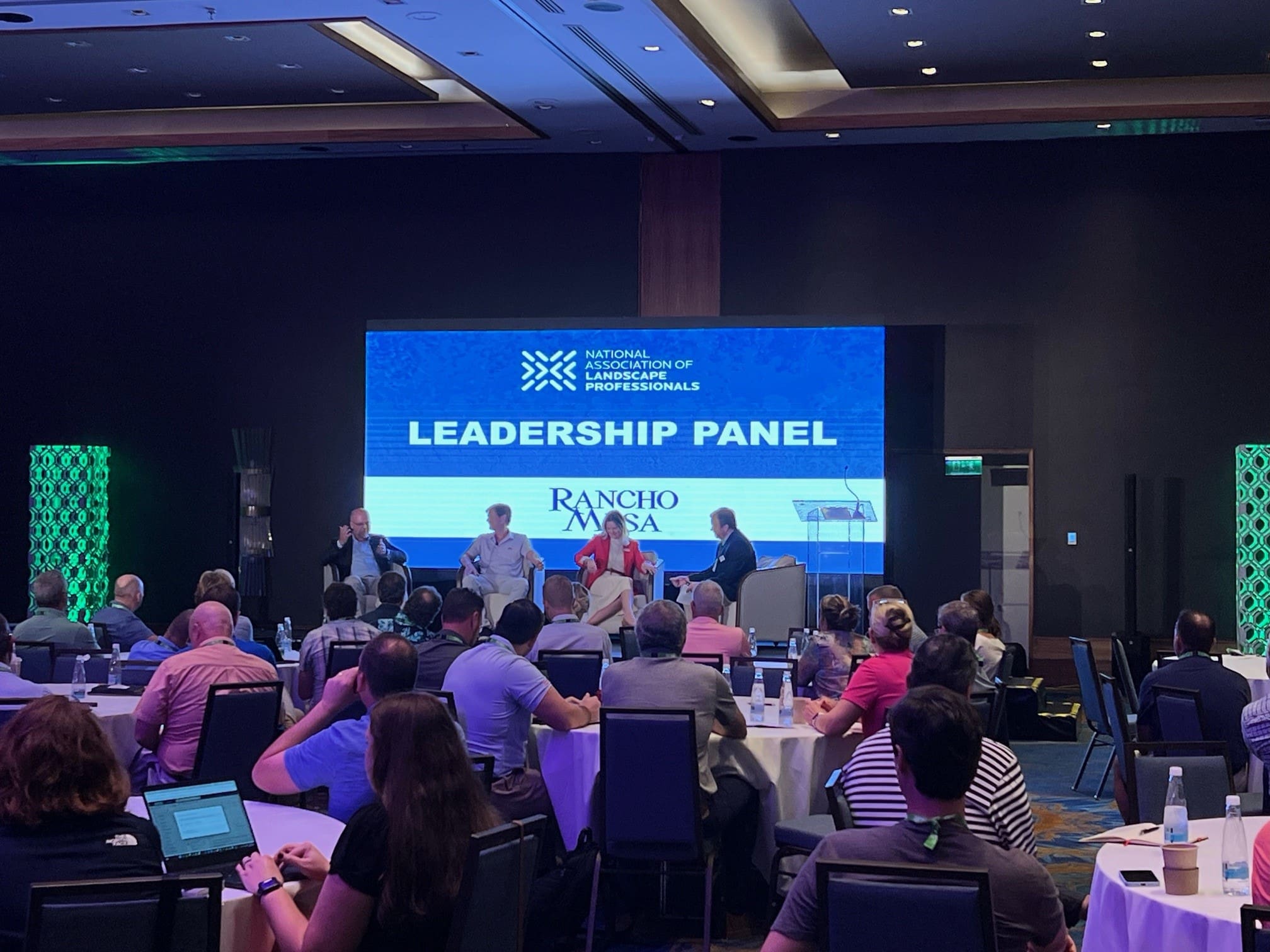
As a leader, it’s important to pause from time to time and be reminded about certain concepts, as well as learn new things.
Brian Helgoe, CEO & founder of Monarch Landscape Companies; Teddy Russell, owner & CEO of Russell Landscape; and Terell Weg, president & CEO of MSNW Group, discussed lessons they’ve learned running their businesses during a panel at Leaders Forum on Jan. 19 in Litibu, Nayarit, Mexico.
Defining Success
Russell says at age 48 what he now considers success has evolved from when he was younger. He learned a lot about leadership from 2007 to 2014 and came to the realization that your team chooses to work for your company, so it is important to define who you are as a company and live by a set of values.
For him, success now means seeing his team succeed. Similarly, Weg says success for her means the health of the organization. She says while your company’s revenue can indicate happy customers and a happy team, take the time to survey your employees and see how they feel about your company culture.
“If your leaders are able to get it to middle management and to the field, then our culture is sustained,” Weg says.
Helgoe says one of his crowning achievements was on his listening tour, where he visited all of Monarch’s branches. He realized that consistently all their employees feel respected and empowered to make the right decision. He says when you build a company and it gets big, what’s important to you is what gets reflected back.
Failing Forward
While no one wants to fail, failure is most often when leaders learn the most. One of Weg’s hard-learned lessons happened after an acquisition. The new owner turned branch manager brought on their largest client at the time and she later discovered this client verbally abused her team members.
“Nothing gets my blood boiling more than my people being treated poorly,” Weg says.
She says the client was destroying their culture, but she failed to act and eventually the client canceled on them with a 30-day notice.
“Know your ideal client and stick to it,” Weg says. “I tell my team, if you see a red flag, we’re walking away. I don’t care if it’s a $5 million account, it’s not worth it.”
Helgoe likens being an operator to being a baseball player. You make so many decisions, you’re never going to get a hit off every single pitch. He says losing money or a contract can force you to reconnect with your team.
Russell says he’s been guilty of trying to do too much too fast or rolling out half-baked ideas to the team, which can cause all kinds of unintended consequences. He notes that the people who don’t make any mistakes often aren’t trying anything. He encourages giving your people permission to feel it’s okay to make a mistake. The balance is ensuring they run their risks by the team first.
Mantras to Live By
Helgoe shared two of his company mantras. One is how accountability and autonomy are both necessary in the business. He says they are two sides of a coin and you need both to have currency. Your employees need the autonomy to get things done but they still need to be held accountable. He also says that safety comes first, because no landscape is worth getting hurt over.
He also notes that it’s important to be hard on people. When you think about who had pushed you to be better and caused you to grow, typically these individuals were hard on you.
“If I really care about someone I work with, I’m hard on them to push them to expand,” Helgoe says. “It’s our job as leaders if we’re giving back to others not to be afraid to be hard on others.”
Weg says one of the mottos they live by is to underpromise and overdeliver. She says by setting a realistic timeline, you can easily reframe interactions with your clients. If you know a job will take a week to do, say it will take 10 days, so when you finish ahead of the expected time, you come out the hero.
Russell says he’s learned not to take things personally.
“As leaders and owners, it’s really hard not to take things personally because we take pride in our companies,” Russell says.
Instead, he says he takes things seriously. He puts himself in the other person’s shoes to see where they’re coming from. He encourages his team to finish strong on every job.
Another one of Russell’s mantras is you have to slow down in order to speed up. Leaders Forum is an example of doing just that. It is a time to think through how your company is operating and what methods that work for your peers could be implemented at your own business.
Thank you to our platinum partner, Caterpillar, and our other supporters of this event!


